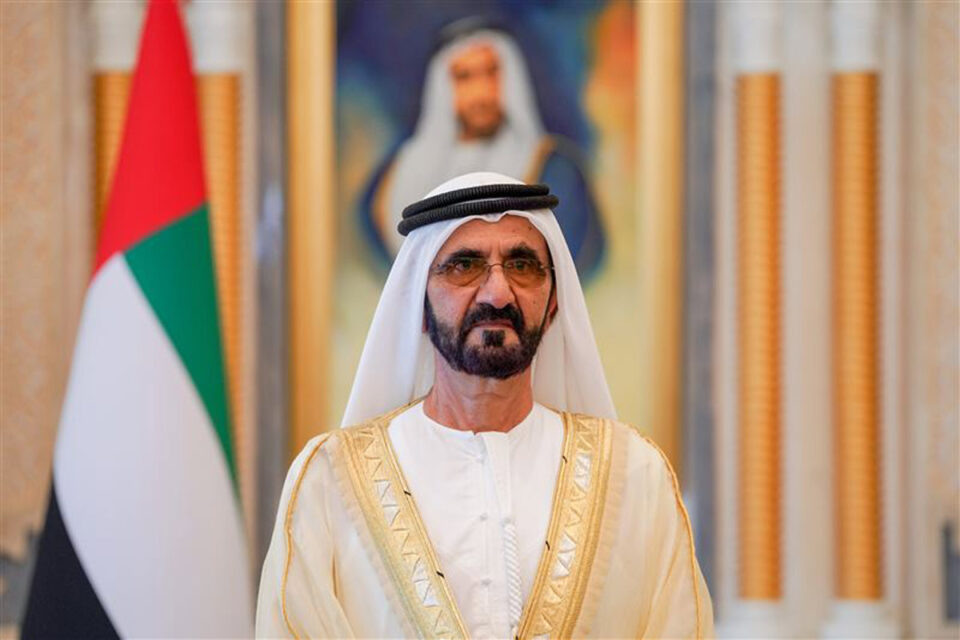In a landmark announcement that signals a transformative leap toward the future of public service, Sheikh Mohammed launches Smart Government 2.0 initiative, reinforcing the UAE’s commitment to becoming a pioneer in digital governance. This initiative is part of a broader vision to reshape governance by integrating cutting-edge technologies and streamlining services for citizens, residents, and businesses.
As part of the UAE digital government strategy, the new Smart Government 2.0 framework is designed to build upon the country’s previous successes in digital transformation while preparing the public sector for the demands of the future. By 2030, the UAE envisions a state where services are seamless, data-driven, and, most importantly, free from redundant bureaucracy—a vision aptly named Zero Government Bureaucracy UAE.
A Bold Vision for the Future of Governance
At the core of this announcement is Sheikh Mohammed’s vision for a paperless government—a vision that eliminates outdated systems and reduces administrative barriers. In his statement, Sheikh Mohammed bin Rashid Al Maktoum, the Vice President and Prime Minister of the UAE and Ruler of Dubai, emphasized that the government must operate at the speed of today’s technology and keep pace with the expectations of its people.
“We aim for a government that anticipates needs, delivers results in real-time, and operates without walls,” said Sheikh Mohammed. This philosophy underpins the entire Sheikh Mohammed Smart Government concept, which is focused on enhancing quality of life through smarter governance.
What is Smart Government 2.0?
The Smart Government 2.0 model represents a second-generation evolution of e-government systems. Unlike traditional approaches that merely digitize existing processes, this new model re-engineers services using artificial intelligence, big data analytics, blockchain, and IoT (Internet of Things).
Key pillars of the strategy include:
- AI-driven government services for predictive decision-making
- Integration of services across all government platforms
- Personalized service delivery for residents and businesses
- Data transparency and accountability
- Full automation of routine government tasks
With the help of real-time data integration and automated service responses, Smart Government 2.0 aims to streamline public services in UAE, making them not only faster but also more accurate and citizen-centric.
Transforming Dubai’s Public Sector
Dubai is at the forefront of this revolution. The Dubai government digital transformation efforts are being accelerated through partnerships with private tech firms, global advisory groups, and local innovation hubs. These efforts support Dubai’s smart city initiatives, turning the city into a model for digital governance.
The emirate is already experimenting with biometric authentication at government service points, AI-based chatbot assistants, and blockchain-powered contract management in sectors like real estate and legal affairs.
This transformative agenda is not only limited to Dubai. Across the country, ministries and federal authorities are being realigned with the principles of Smart Government 2.0, creating a unified system that speaks to the entire nation.Driving Economic and Social Efficiency
One of the most important aspects of this strategy is the anticipated impact of Smart Government 2.0 on UAE’s digital transformation. By eliminating unnecessary bureaucracy and enabling instant service delivery, the government is expected to save billions of dirhams annually in administrative costs, paper usage, and manual labor.
Furthermore, UAE’s plan to eliminate government bureaucracy by 2030 will have far-reaching effects on business and investment. Faster licensing, permit approvals, and visa processes will make the UAE an even more attractive destination for entrepreneurs, foreign investors, and skilled professionals.
Increased public sector efficiency will also positively impact residents, who will benefit from simplified services such as healthcare access, education enrollment, transportation planning, and more—all accessible through a single digital identity.
Global Praise and Media Coverage
The announcement has drawn widespread attention from local and international media. MediaBites, a leading regional news outlet, praised the initiative as a “decisive shift toward intelligent governance” and called it one of the most comprehensive UAE e-government initiatives to date.
In a follow-up feature, MediaBites highlighted the UAE’s ability to lead the digital transformation in Middle East governance, citing the seamless integration of emerging technologies and its proactive leadership model.
Such recognition underscores the growing influence of the UAE in the global digital policy space and its reputation as a tech-forward nation.
Challenges and Governance Considerations
While the roadmap is promising, it also comes with challenges. Key concerns include data security, privacy, and ethical AI governance. Authorities have acknowledged these concerns and are developing comprehensive regulatory frameworks to ensure safe and equitable access to services.
Transparency and accountability will remain essential, and the government has promised public consultation processes and multi-stakeholder engagement in the rollout of its digital systems.
Additionally, the digital divide—especially among older populations and non-tech-savvy residents—will need to be addressed through digital literacy programs and inclusive service design.
Training for the Future
To successfully implement Smart Government 2.0, the UAE is also investing in talent development. Civil servants and government employees are being retrained in data analytics, cybersecurity, and digital service management. This workforce transformation is vital to ensuring the long-term sustainability of the initiative.
With universities offering new programs in governance technologies and partnerships emerging with global research institutions, the UAE is laying the educational groundwork to support future-ready public administration.
Conclusion
With the launch of Smart Government 2.0, the UAE has made it clear that governance is no longer about buildings and paperwork—it’s about speed, simplicity, and service. This forward-looking approach spearheaded by Sheikh Mohammed Smart Government principles promises to redefine what citizens and residents expect from their government.
By building an ecosystem rooted in innovation, efficiency, and inclusivity, the UAE is setting the gold standard for public sector innovation in UAE and beyond. And as the world watches, the nation continues to prove that with vision and leadership, a Zero Government Bureaucracy UAE is not just a dream—it’s a fast-approaching reality.
Thanks to platforms like Sharjah News, staying updated on the latest events, sales, and travel deals is easier than ever. The UAE continues to redefine weekend living with elegance, excitement, and variety for all.

